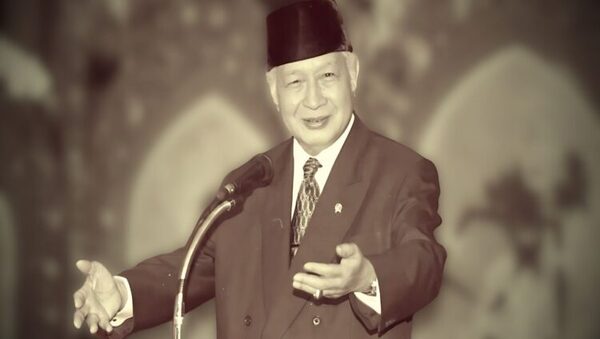Honoring Soeharto Would Betray Reform, Amnesty Warns
JAKARTA, RAKYAT NEWS – Amnesty International Indonesia has issued a strong condemnation of the recent nomination of Indonesia’s second president, Soeharto, for the title of National Hero. Executive Director Usman Hamid described the move as “one of the greatest betrayals” of the reform era that began after Soeharto’s fall in 1998. The controversial proposal, he warned, could mark the symbolic end of Indonesia’s hard-won democratic transition.
“If this proposal goes forward under the Prabowo administration, it will signal the death of reform,” Hamid stated. “Soeharto was overthrown by the will of the people through massive protests. To now call him a hero is to erase the very history that brought democracy to Indonesia.” His comments follow the submission of a list of 40 proposed national heroes by Social Affairs Minister Saifullah Yusuf to Culture Minister Fadli Zon on October 21.
According to Amnesty, Soeharto’s nomination represents a deliberate attempt to whitewash the crimes of an authoritarian regime that ruled Indonesia for over three decades. The New Order government, under Soeharto’s leadership, was marked by rampant corruption, suppression of dissent, and widespread human rights abuses. Amnesty argues that honoring such a legacy contradicts the principles of justice and accountability.
“Soeharto’s 32-year rule was marred by systemic oppression,” Hamid emphasized. “Freedom of expression was crushed, political opponents were silenced, and human rights were consistently violated with impunity. To name him a national hero is to trample on the pain of victims who still await justice.”
Among the most egregious abuses committed during Soeharto’s tenure were the mass killings of 1965–1966, the mysterious Petrus shootings between 1982–1985, and violent crackdowns such as the Tanjung Priok massacre (1984), Talangsari incident (1989), and military operations in Aceh, Timor-Leste, and Papua. Additionally, the forced disappearance of pro-democracy activists in the lead-up to Soeharto’s resignation remains unresolved.


Tinggalkan Balasan Batalkan balasan